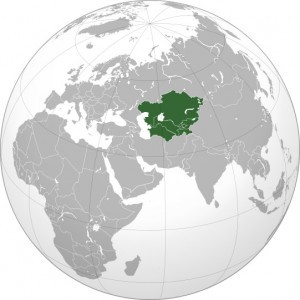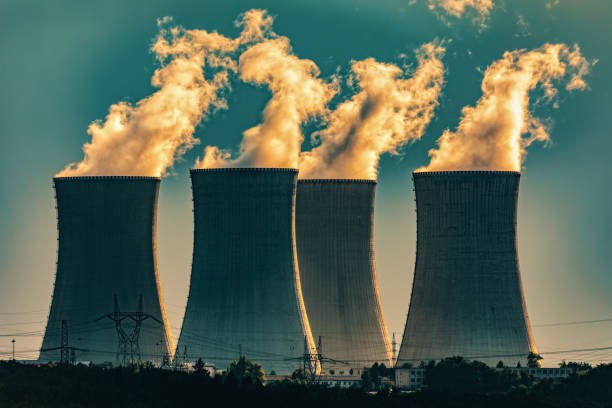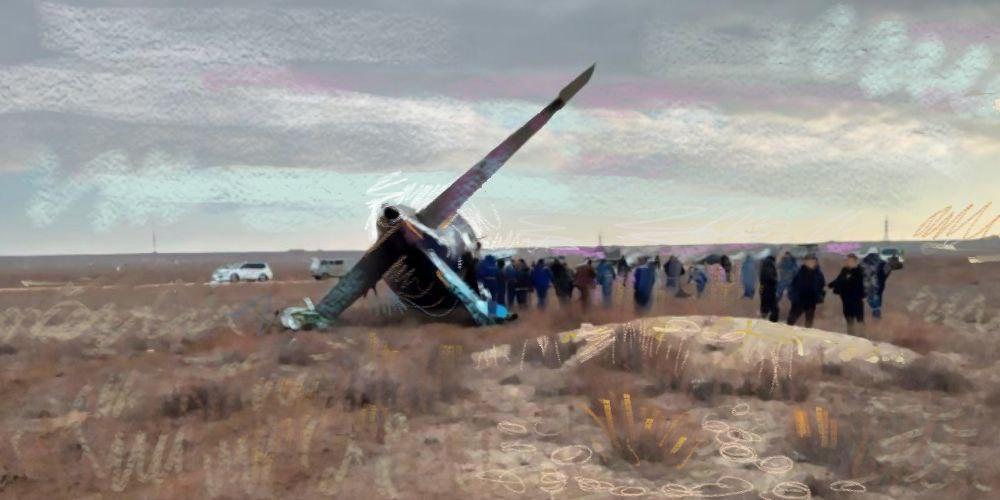BISHKEK (TCA) — The Times of Central Asia presents to its readers Stratfor’s Global Intelligence, a weekly review of the most important events that happened in the world — from Europe to Middle East to Russia to Central Asia to Afghanistan to China and the Americas.
The Week That Was
Turkey’s Failed Coup
Turkey shocked the world once more, this time with a surprising coup attempt by a minority faction within the military. The coup attempt was startling for its sheer bravado. This was not the simple paradigm of a secularist military rising up to challenge an Islamist civilian government (as in Egypt). Rather, this was a coup attempted by a highly polarizing faction within the military influenced by Islamist followers of the Gulen movement. As we pointed out early on in our coverage of the coup, a putsch bred from a severely divided military was destined to fail.
The government of President Recep Tayyip Erdogan had long been purging the government, courts, media and schools of Gulenists. However, it had not completed the purge of the military. The air force in particular had numerous Gulenists. The coup plotters knew they were the next to be rounded up ahead of a Supreme Military Council meeting in August, and so they decided to trigger the plot. But without legitimate popular backing, political or popular support, they quickly failed. Prepare to hear more conspiracy theories from Turkey. Allegations are already flying of a false-flag coup staged by Erdogan to strengthen his power and of a CIA-backed coup to weaken Turkey. These theories simply do not hold weight.
Erdogan will emerge stronger from this crisis, using the coup to justify harsher crackdowns and a constitutional rewrite to weaken the military and strengthen the presidency.
It will take time for Turkey to recover from the crisis, which spells trouble for Turkey’s foreign policy. The country is already deeply polarized and economic uncertainty will continue. Kurdish militant groups and the Islamic State can use the political crisis to carry out more large-scale attacks, adding to the volatility. And as Europe continues to fragment in wake of Brexit, Turkey’s largest export market will also remain stagnant. At the same time, Turkey has to face pressing challenges just across its borders in northern Syria and northern Iraq. Erdogan will need time to rebuild his military given the distractions, which places more burden on the United States to manage the fight against Islamic State.
Terror in Nice
The Bastille Day attack in Nice, France marks the fourth major terrorist attack in Europe in eight months. Unlike the November 2015 Paris attacks, the March airport and subway attacks in Brussels and the July Istanbul airport attack, the Nice attack was committed by a lone grassroots terrorist who instead of relying on explosives or coordinating with a group of operatives, simply drove a large transport truck at high speed through a large crowd of revelers. With 84 reported dead so far, this attack is also the deadliest lone wolf attack to date. Groups like Hamas and Al Qaeda in the Arabian Peninsula have also popularized the use of vehicles for resourceful attacks. The success of the attack in causing a high number of casualties will raise the risk of copycat attacks in Europe and elsewhere. The larger and heavier the vehicle employed, the more deadly the attack.
Typically, major terrorist attacks will have a more temporary impact on tourism as travelers are more prone to delay booking reservations and then tend to resume their travel plans once the initial shock fades. That said, the persistent threat of such attacks in Europe and the proven ability of militants to target both hard and soft targets, from airports to street crowds, could act as a more prolonged deterrent against European travel. Turkey, which has faced a persistent and multifaceted threat of terrorist attacks from Islamic State, Kurdish militants as well as radical leftist groups, has seen a 16 percent decline in tourism year on year due to such threats and deterioration in its relationship with Russia.
For the European periphery states that rely heavily on the tourism and services industries for even a tepid recovery, a more prolonged depression in European travel would exacerbate the economic stresses that are driving a rise in nationalist and Euroskeptic sentiment. And when Euroskepticism reaches the point that major shifts, like members leaving the European Union, occur, economic uncertainty will deepen overall. This is a long, but predictable cycle leading to greater economic volatility the longer such threats persist.
New British Prime Minister
Political uncertainty in the United Kingdom de-escalated slightly this week when former Home Secretary Theresa May was appointed prime minister. May has a hard job ahead since she will have to reunite a divided Conservative party and, more important, a divided British society. May appointed vocal “leave” campaigners, including Foreign Secretary Boris Johnson, to negotiate the terms of Britain’s withdrawal from the European Union.
This could be a strategy to negotiate from a tough position at first and reach compromise down the line. Once formal negotiations begin (likely by the end of the year) the two parties will probably clash over the European Union’s claim that access to the internal market also means accepting EU workers.
More Russo-American Awkwardness
A very persistent U.S. Secretary of State John Kerry went to Moscow this week to meet with Russian Foreign Minister Sergei Lavrov as well as Russian President Vladimir Putin. Russia made clear that it was not particularly excited by the talks and conveyed that little progress was made on the U.S. proposal to coordinate military action against the Islamic State. This is exactly what was to be expected at this stage of the U.S.-Russian dialogue: the Obama administration wants to talk in precise detail about the military campaign against Islamic State while the Putin government wants to use the Syrian discussion as a launching pad into a more strategic dialogue on matters concerning Russia in the former Soviet sphere.
We may see a little tactical compromise here and there, but this is not a disconnect that will be fundamentally resolved any time soon. The urgency on the U.S. side will increase as the Russian-backed loyalist siege on Aleppo intensifies in the coming days. We have received word that some rebel groups are distancing themselves from Jabhat al-Nusra, which is the jihadist affiliate that may be targeted in a joint U.S.-Russia campaign. We are still in the process of verifying such rumors. There have been several failed attempts in the past to geographically isolate Jabhat al-Nusra on the battlefield.
Japanese Ruling Party Wins Big
Results from the July 10 upper house elections were better than expected for the Liberal Democratic Party (LDP) and its coalition partner Komeito. The LDP now has an independent majority in the upper house and Komeito pushes the ruling coalition number to over 60 percent. Adding non-coalition parties such as Osaka Restoration Association in favor of amending Article 9 of the Japanese Constitution (the pacifist article), forces for constitutional amendment now have a supermajority in the upper house.
Both houses now in theory have two thirds majorities in favor of constitutional amendment — unprecedented in Japanese history. But despite the stronger than expected showing, Abe will have to consider the timing of a bid for constitutional amendment. Also on his agenda are other politically capital intensive items: among them are corporate reform and the ratification of Trans-Pacific Partnership. With the Trans-Pacific Partnership likely to be at an impasse at least for a year by the admission of U.S. House speaker Paul Ryan, Japanese Prime Minister Shinzo Abe will need to carefully consider his priorities
South China Sea Ruling
The Permanent Court of Arbitration ruled in a suit that Philippines brought against China that China’s nine-dashed-line was invalid as a claim to the South China Sea under the U.N. Commission on the Law of the Sea. The court ruled that no features in the Spratly Islands could be classified as islands entitled to a 200 nautical mile Exclusive Economic Zone (EEZ). While Chinese State Media is blustering, both Beijing and Manila appear to be proceeding relatively cautiously. President Rodrigo Duterte is now exploring the possibility of talks with the Chinese. While Duterte skipped the Asia-Europe Meeting (ASEM) held in Mongolia, perhaps to avoid undue escalation of tensions, Foreign Secretary Perfecto Yasay, who went in his place, raised the issue of the court ruling against China’s wishes.
Saudi and Kuwait Team up in Bond Market
The bond market in the Gulf Cooperation Council is hotter than ever before. This week Kuwaiti officials suggested that they would be willing to cooperate with Saudi Arabia on the timing of a bond issuance, to extract an optimal amount from investors. Kuwait and Saudi Arabia are already behind Qatar and the United Arab Emirates who have issued multi-billion U.S. dollar bonds earlier this year. Amidst budget deficits spurred by low oil prices in all of the oil-rich Gulf states, competition for international financing is an increasing reality, though each country’s issuances are appealing in their own ways. In the same vein, Kuwait also announced this week the beginnings of planning for oil sector privatization plans that are similar to Saudi Arabia’s in scope – downstream assets only.
Peronism Comeback in Argentina
In Argentina, a protest on July 14 revealed the limits of President Mauricio Macri’s plans to revive Argentina’s energy sector and bolster government finances. Macri’s administration implemented natural gas price hikes at the beginning of the year that raised consumer prices of natural gas by up to 1,000 percent in some provinces. A lower court on July 7 ordered a halt to this price scheme. The government appealed the ruling and now the country’s supreme court will within months issue a definitive ruling on the matter.
On July 14, demonstrations in several cities and provinces across the country were supported by both the Front for Victory and the Renewal Front opposition blocs. Publicly opposing Macri’s price hikes provides the Peronist opposition with badly needed political unity ahead of the 2017 legislative elections. But the protest and legal dispute will delay Macri’s attempts to boost investor confidence in Argentina. Consequently, the political struggle over natural gas prices is worth watching to determine the pace at which Argentina opens again to foreign capital.
An Important Shift in Venezuela
In Venezuela, President Nicolas Maduro on July 11 granted Defense Minister Vladimir Padrino Lopez authority over all cabinet ministries. Padrino Lopez now has the authority to issue rulings with legal effect at a local, regional and business level. The move effectively makes Padrino Lopez a parallel president with the authority to administer ministries alongside Maduro.
The defense minister’s appointment appears to be a move intended to cement authority over the government in the face of the country’s severe economic crisis. On July 11 the armed forces also took control of supply chains from ports to food distributors, ostensibly in an attempt to make the distribution of essential food items more efficient. Bringing the defense minister into such a position of power opens the president up to some risk, however. If the defense minister and sufficient figures from the ruling party consider Maduro’s resignation or recall via referendum a necessity, the president will have few means at his disposal to resist his removal.
A Mysterious Cuban Resignation
On July 14, Cuban Economic Minister Marino Murillo resigned from his position. Murillo, who had been economic minister since 2009, was succeeded by the vice president of the Cuban Council of Ministers, Ricardo Cabrisas. Cabrisas, who had overseen the country’s recent debt restructuring, will now be tasked with managing the Cuban economy during its challenging opening to increasing private capital. The sudden nature of the removal is notable, although it may ultimately have more to do with internal restructuring than anything else.
In Mexico, a Leftist Alliance
Leftist Mexican politician Andres Manuel Lopez Obrador announced on July 14 that he would be open to a political alliance with the Party of the Democratic Revolution (PRD) for the 2018 presidential election. The PRD in recent months had been seeking an alliance with Lopez Obrador’s National Regeneration Movement (MORENA). Neither MORENA nor the PRD poll well at a national level individually, but an eventual alliance could allow them to potentially make a viable run at the presidency in two years.
Negotiations between PRD and MORENA, however, would likely end any outreach from the more conservative National Action Party (PAN) to the PRD concerning an electoral alliance. The PAN and the PRD had been discussing a potential alliance over the past several months, and with Lopez Obrador’s bid for an alliance, that outreach is likely in limbo.
Full Articles
Third-Quarter Forecast 2016
The Brexit referendum, and the fallout from it, will be among the most heavily scrutinized themes of the next quarter. And though it may have been the most visible confirmation of the European Union’s disintegration, it was May 1, 2004, that sowed the seeds of London’s departure.
On that day, a day that came to be known, perhaps ironically, as the “Day of Welcomes,” the bloc admitted 10 countries — the Czech Republic, Hungary, Latvia, Lithuania, Estonia, Poland, Slovakia, Slovenia, Malta and Cyprus — into its ranks. It epitomized an era of unprecedented EU expansion and honored the promise of prosperity that sold the European project to so many countries that were all too eager to buy it, particularly those that for decades had been bridled by the Soviet Union. The European Union now had 10 more members, each with its own set of policy priorities, national identity, rules of law, economic irregularities and methods of regulating them. Their accession created differences that simply could not be reconciled, for no country can be expected to subordinate its own well-being to another’s.
Broken Trust: How a Failed Coup Weakens Turkey
The coup attempt that saw the Turkish state plunged into crisis has come at precisely the wrong time for Ankara. Just over the border in Iraq and Syria, critical challenges are mounting, as Ankara is being drawn deeper into the fight to contain the Islamic State. Turkey is also combating its own domestic Kurdish militant movement, the Kurdistan Workers’ Party (PKK). Because the coup emerged from within certain divisions of the military, the government of President Recep Tayyip Erdogan and his Justice and Development Party (AKP) will now engage in heavy purges of the armed forces. This will make it difficult for Ankara to use the military as an instrument of policy and national strategy. The coup has been put down, but it could hamstring Turkey for a long time to come.
The Anatomy of a Coup Attempt
Coups tend to be evaluated by a single criterion: whether or not they achieved their purpose. And though the results are, of course, what matters most to those who have power — and those who covet it — that kind of evaluation ignores the anatomy of what makes a coup successful. The current situation in Turkey reveals a significant degree of planning and coordination, but its “success” depends on the same things that all others do.
The Cost of Another Housing Slump in China
After a nearly two-year decline, China’s housing market got off to a relatively strong start in 2016, propelled by surging home prices in coastal metropolises such as Shenzhen, expanded fiscal support, and relaxed restrictions on home purchases nationwide. In light of the otherwise anemic performance of the Chinese and global economies, the recovery of China’s massive real estate sector — which, by some estimates, contributes at least 25 percent of the country’s gross domestic product in construction alone — is no small feat. But housing data for May could herald yet another slowdown, at least in premier property markets. Month-on-month, home prices rose in just 60 of 70 surveyed cities, down from 65 in April. If June home price figures, to be released July 18, continue in the same direction, it could mark the start of a protracted downturn in China’s most important sector. And for some parts of the country, another slump could be devastating.
Argentina: What Stands in the Way of Energy Revival
A dispute over natural gas prices could signal greater difficulties ahead for Argentina’s government. An Argentine federal court ordered on July 7 that increases in the price of natural gas implemented by President Mauricio Macri be halted. Since the beginning of the year, the government has paid producers more for natural gas, pushing up costs for consumers. The hike is part of a plan to both reduce energy consumption in the country and spur more production by private firms. More broadly, the strategy is part of the administration’s attempt to reverse Argentina’s energy deficit, reduce energy subsidies, attract investors to the country’s natural gas sector and eventually raise the government’s share of energy revenue.
In India, Modi Tackles the Economy Alone
India’s economy is a study in contradiction. It is the fastest growing economy on Earth, and yet it cannot produce enough jobs to lift a quarter of the world’s poor out of India’s dusty villages and sprawling urban slums. It boasts the second-largest labor pool, yet roughly half those workers are mired in an agricultural sector that contributes less than 16 percent of the country’s gross domestic product. It attracted $44 billion in foreign direct investment last year — the 10th-largest inflow in the world — and yet its business environment continues to be hobbled by bureaucracy, corruption and bribery.
Steering an economy such as India’s toward growth and stability is no small feat, but that has not stopped Prime Minister Narendra Modi and Reserve Bank of India Gov. Raghuram Rajan from trying. The two men have different ideas about how to get the Indian economy back on track, however. Unable to reconcile those differences, Rajan recently announced his intention to step down in September, leaving Modi to tackle one of the country’s biggest problems alone.
Tapping the Brakes on Automated Vehicles
Engineering advances have put automated vehicles on an accelerating path toward commercial availability and, eventually, wider use. But a recent fatal accident involving a car that used semi-autonomous technology might stall the future of self-driving cars.
The Gap Widens Between Europe’s North and South
The British vote to leave the European Union has begun to take a political and economic toll on the Continent. Italy’s biggest banks, already weighed down by a crushing amount of bad debt, saw the value of their shares and stocks tumble in the referendum’s wake. Spain and Portugal, meanwhile, have failed to reduce their deficits enough to meet EU targets, drawing the ire of Northern European countries that fear Britain’s departure will boost the influence of Southern Europe’s struggling states.
Neither of these problems is new for Europe, long split between north and south, but both will become more important — and more divisive — as Britain prepares to exit the union. To hold the crumbling bloc together, European officials will try to broker compromises as best they can, trading long-term solutions for temporary stability on the Continent.
Week Ahead
Turkey Post-Coup Attempt
Turkey will be the key place to monitor in the coming week as the Erdogan government proceeds with large-scale crackdowns to purge the military and courts of Gulenist affiliates. There is talk of reviving the death penalty in Turkey as well to hold the traitors responsible. This will create tension with Europe, which is trying to get Turkey to comply with its version of human rights and democracy. But Turkey will not let the Europeans stand in the way of its crackdown. We will need to watch for accelerated efforts by Erdogan to rewrite the constitution to strengthen his presidency and see if there is any potential for an early election in the wake of the crisis. We will also need to assess to what extent Turkey’s crisis with its military will impede the U.S.-led military campaign in Syria.
Iranian President in the Provinces
Iranian President Hassan Rouhani is due to visit the province of Kermanshah, in the far west of Iran on July 17. He will be accompanied by a delegation of deputies and ministers aiming to consult with the leaders of the province on its economic issues. Home to a significant Kurdish minority and situated in a region of Iran experiencing a small but growing Kurdish insurgency, Kermanshah was the site of an attempted assassination on an Iranian parliamentarian this past week by a Kurdish militant group.
On July 14, the other parliamentarians from Kermanshah declared in a letter to the President that they will not accompany him on his visit in protest at the government’s perceived unfair economic treatment of the province. The lawmaker’s boycott of the visit will be a blow to Rouhani’s effort to communicate the government’s concern for Kurdish minorities, one facet of Iran’s efforts to calm the growing threat of insurgency. Interestingly, Iranian Kurdish groups have been appealing to Saudi Arabia for assistance in their military campaign. We are on alert for signs of Saudi meddling in Iran.
EU Commission Meeting
The European Commission will meet July 20 to discuss a report on the impact of granting China market economy status. European steelmakers have already been bristling at a potential EU decision to lift trade barriers against China and strong populist sentiment in Europe, particularly exposed following the Brexit vote, will likely lead to a compromise ruling by the European Union in which China would be granted status at the end of the year, but on the condition that the bloc would be monitoring overcapacity in China and be allowed to take measures to protect more vulnerable sectors within the European Union.
India’s Monsoon Session
On July 18, the Indian parliament will convene for its annual Monsoon Session. Topping the legislative agenda will be a constitutional amendment to the Goods and Services Tax, a major reform initiative aimed at unifying India’s tax market, boosting consumption, and spurring growth. While the lower house of parliament approved the amendment in 2015, the bill has languished in the upper house where the opposition Indian National Congress party (which holds a sizeable if diminishing voting bloc) has led an effort to block the legislation in its current form.
Now that prime minister Narendra Modi’s Bharatiya Janata Party has assembled a strong coalition in favor of the Goods and Services Tax, he wants to bring the Indian National Congress on board and bring it for a vote. This week, Bharatiya Janata Party information minister Venkaiah Naidu telephoned two high-ranking officials in the Indian National Congress; in the week ahead, we will be watching to see if the two rival parties follow-up on that phone call and hold a formal meeting on the Goods and Services Tax for the first time since November.









